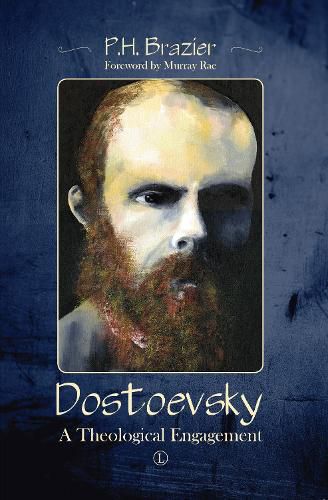Readings Newsletter
Become a Readings Member to make your shopping experience even easier.
Sign in or sign up for free!
You’re not far away from qualifying for FREE standard shipping within Australia
You’ve qualified for FREE standard shipping within Australia
The cart is loading…






As a writer and prophet Dostoevsky was no academic theologian, yet his writings are deeply theological: his life, beliefs, even his epilepsy, all had a role in generating histheology and eschatology. Dostoevsky’s novels are riven with paradoxes, are deeply dialectical, and represent a criticism of religion, offered in the service of the gospel. In this task he presented a profound understanding and portrait of humanity. Dostoevsky’s novels chart the movement of the human into death: either the movement through paradox and Christlikeness into Christ’s cross (a soteriology often characterized by the apophatic negation and self-denial; what we may term ‘the Mark of Abel’) leading to salvation and resurrection; or, conversely, the movement of those who refuse Christ’s invitation to be redeemed, and continue to fall into a self-willed death and a selfgenerated hell (‘the Mark of Cain’). This eschatology becomes a theological axiom which he unceasingly warned people of in his mature works. Startlingly original, stripped of all religious pretence, Dostoevsky as a prophet forewarned of the politicized humanistic delusions of the twentieth century: a prophet crying out through the wilderness.
$9.00 standard shipping within Australia
FREE standard shipping within Australia for orders over $100.00
Express & International shipping calculated at checkout
As a writer and prophet Dostoevsky was no academic theologian, yet his writings are deeply theological: his life, beliefs, even his epilepsy, all had a role in generating histheology and eschatology. Dostoevsky’s novels are riven with paradoxes, are deeply dialectical, and represent a criticism of religion, offered in the service of the gospel. In this task he presented a profound understanding and portrait of humanity. Dostoevsky’s novels chart the movement of the human into death: either the movement through paradox and Christlikeness into Christ’s cross (a soteriology often characterized by the apophatic negation and self-denial; what we may term ‘the Mark of Abel’) leading to salvation and resurrection; or, conversely, the movement of those who refuse Christ’s invitation to be redeemed, and continue to fall into a self-willed death and a selfgenerated hell (‘the Mark of Cain’). This eschatology becomes a theological axiom which he unceasingly warned people of in his mature works. Startlingly original, stripped of all religious pretence, Dostoevsky as a prophet forewarned of the politicized humanistic delusions of the twentieth century: a prophet crying out through the wilderness.